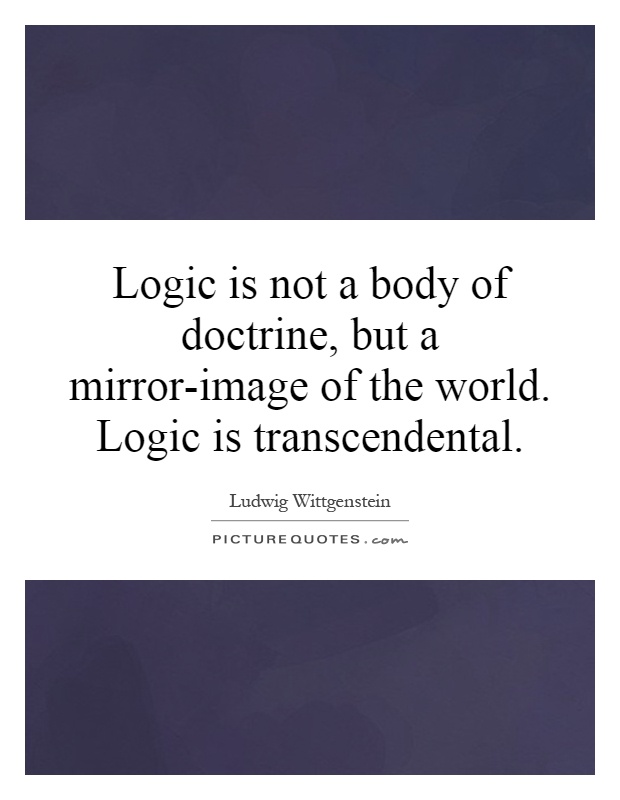Logic is not a body of doctrine, but a mirror-image of the world. Logic is transcendental

Logic is not a body of doctrine, but a mirror-image of the world. Logic is transcendental
Ludwig Wittgenstein, one of the most influential philosophers of the 20th century, made significant contributions to the field of logic and language. His work on logic, particularly in his early work "Tractatus Logico-Philosophicus," emphasized the idea that logic is not a body of doctrine but rather a mirror-image of the world. This concept suggests that logic is not something that exists independently of the world, but rather reflects the structure and order of the world itself.Wittgenstein believed that logic is transcendental in nature, meaning that it is not bound by the limitations of human understanding or experience. Instead, logic transcends these limitations and provides a framework for understanding the world in a more fundamental and universal way. In this sense, logic is not just a set of rules or principles that govern the way we think and reason, but rather a reflection of the underlying structure of reality itself.
Wittgenstein's view of logic as a mirror-image of the world has profound implications for our understanding of language, thought, and reality. By recognizing that logic is not a human invention but rather a reflection of the world, we can gain a deeper insight into the nature of truth, meaning, and knowledge. This perspective challenges traditional views of logic as a purely formal and abstract discipline, and instead suggests that logic is intimately connected to the world we inhabit.












 Friendship Quotes
Friendship Quotes Love Quotes
Love Quotes Life Quotes
Life Quotes Funny Quotes
Funny Quotes Motivational Quotes
Motivational Quotes Inspirational Quotes
Inspirational Quotes